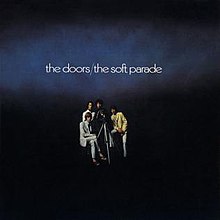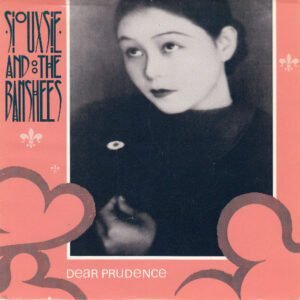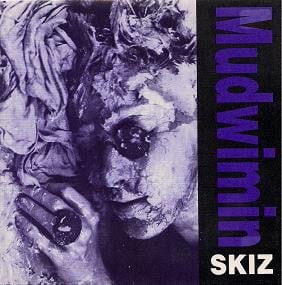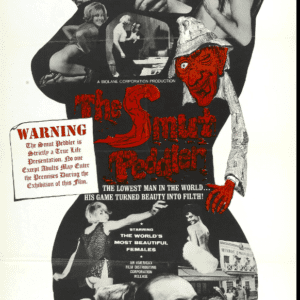The Doors – The Soft Parade
Description
| The Soft Parade | ||||
|---|---|---|---|---|
 |
||||
| Studio album by | ||||
| Released | July 18, 1969 | |||
| Recorded | July 1968 – May 1969 | |||
| Studio | Elektra, Hollywood | |||
| Genre | ||||
| Length | 33:39 | |||
| Label | Elektra | |||
| Producer | Paul A. Rothchild | |||
| The Doors chronology | ||||
|
||||
| Singles from The Soft Parade | ||||
|
||||
The Soft Parade is the fourth studio album by American rock band the Doors, released on July 18, 1969, by Elektra Records. Most of the album was recorded following a grueling tour during which the band was left with little time to compose new material. Record producer Paul A. Rothchild recommended a total departure from the Doors’ first three albums: develop a fuller sound by incorporating brass and string arrangements provided by Paul Harris. Lead singer Jim Morrison, who was dealing with personal issues and focusing more on his poetry, was less involved in the songwriting process, allowing guitarist Robby Krieger to increase his own creative output.
The album peaked at number six on the Billboard 200, but it failed to retain audiences in the UK and other European countries that their previous album, Waiting for the Sun, had succeeded in engaging. Three preceding singles, “Touch Me“, “Wishful Sinful“, and “Tell All the People“, were included on The Soft Parade, with the former becoming another Top 10 hit for the Doors. Another single, “Runnin’ Blue“, also followed the album’s distribution. Upon release, The Soft Parade was denounced by both music critics and the band’s underground music scene followers, who viewed the album as the Doors’ trending into popular music. Over time, historians have reassessed the album and its critical standing has slightly improved, but it is still widely considered the group’s weakest effort with Morrison.
Background
hed themselves as one of the most popular groups in the US. The band’s third studio album, Waiting for the Sun, released in July of the same year, became the Doors’ only number one hit on the Billboard 200, while also spawning their second single to peak at number one with “Hello, I Love You“. The album was the first commercial breakthrough for the band in the UK, reaching number 16 on the UK Albums Chart. After the release of Waiting for the Sun, the Doors commanded substantial performance fees and played before large crowds in arenas such as the L.A. Forum, the Hollywood Bowl, and Madison Square Garden. Additionally, local Los Angeles Top 40 radio stations, KHJ Radio in particular, which had previously refused to play the band’s records, began sponsoring the Doors’ live performances. Initial sessions for the album occurred on July 26, 1968 when the band recorded “Wild Child” and “Wishful Sinful” (“Easy Ride” was a Waiting for the Sun leftover, captured on March 3, 1968). In September 1968, the group played dates in Europe, along with Jefferson Airplane, before ending their long, grueling touring schedule with nine concerts back in the US. While the 1968 tours managed to capitalize on the chart success of Waiting for the Sun, it also left little time for the Doors to compose new songs for The Soft Parade, having already exhausted all the material from Morrison’s songbooks.
Throughout 1968, Morrison’s behavior became increasingly erratic: he began drinking heavily and distanced himself from studio work to focus on his more immediate passions, poetry and film making. At the time, Morrison was also struggling with anxiety, and felt like he was on the brink of a nervous breakdown. He considered quitting the Doors, but was persuaded by keyboardist Ray Manzarek to finish recording The Soft Parade before making such a decision.
In November 1968, the band entered the newly established studio Elektra Sound West on La Cienega Boulevard to continue work on The Soft Parade, a process that was not completed until May 1969. Without any album-ready material to work with, record producer Paul A. Rothchild took control of the recording sessions and insisted on numerous retakes of songs, much to the group’s indignation. “It was like pulling teeth to get Jim into it”, sound engineer Bruce Botnick recalled. “It was bizarre … the hardest I ever worked as a producer.” Rothchild, who by this time was addicted to cocaine and incredibly strict in his leadership, caused severe strife in the studio, especially with his advisor Jac Holzman, who argued that the drive for perfection was “grinding them [The Doors] into the ground”. The album was by far the most expensive by the group, costing US$80,000 to create in contrast to the US$10,000 required for their debut.
Music
The Doors wanted to redefine what could be accomplished within the rock medium. Looking for a new, creative sound, Rothchild hired Paul Harris to arrange string and orchestral arrangements for the Los Angeles Philharmonic and local jazz horn players. Session musicians Doug Lubahn and Harvey Brooks also served as additional bass guitarists. The music on The Soft Parade incorporated psychedelic rock, blues rock, art rock, jazz rock, pop rock and experimental styles. Drummer John Densmore and Manzarek, who both had jazz backgrounds, asserted they were receptive to Rothchild’s jazz concept: “We’d [Densmore and Manzarek] always talk about using some jazz musicians – let’s put some horns and strings on, man, let’s see what it would be like to record with a string section and a big horn section,” recalled Manzarek.
Although Morrison was less involved in the Doors’ studio sessions at this point, he demanded the band receive individual writing credits after initially refusing to sing Krieger’s lyric, “Can’t you see me growing, get your guns” on the track “Tell All the People“. As a result, The Soft Parade was the first Doors album to list band members separately rather than collectively as “Songs by the Doors.” Krieger continued to hone his songwriting skills to fill the void left by Morrison’s absence. He wrote half of the album’s tracks, while Morrison is credited with the other half (they share co-credits on “Do It”), ultimately creating an album that lacks the unified musical stance found in the Doors’ early works.
Krieger’s songs, written almost independently from the rest of the band, most noticeably incorporated the jazz influences. Only his tracks, “Tell All the People”, “Touch Me“, “Runnin’ Blue“, and “Wishful Sinful“, were written to include string and horn arrangements; Morrison, though not totally opposed to the concept, declined to go in the direction Densmore and Manzarek championed. “Touch Me” (penned under the working titles “Hit Me” and “I’m Gonna Love You”) was chosen as the first single taken from The Soft Parade, becoming one of the Doors’ biggest hits. The band brought in the saxophone player Curtis Amy to perform a solo instrumental on the song, which was influenced by the works of John Coltrane.
Journalists Nathan Brackett and Christian Hoard found “Wild Child” as “Morrison parodying himself.” “Shaman’s Blues” and the title track were both examples of the singer’s penchant for using symbolism and autobiographical insights. The latter song, a stylistic return to a lengthy track closing a Doors album, was penned with the help of Rothchild, who organized pieces of Morrison’s poetry with him to align rhythmically and conceptually. Introduced with a mock-fiery sermon by Morrison, “The Soft Parade” displays his Southern roots through his portrayal as a preacher. The song’s ambiance is heightened by the striking imagery which outlines a need for sanctuary, escape, and pleasure. Critic Doug Sundling noted that “The Soft Parade”, with its display of funk, jazz, acid rock and psychedelic pop influences, is more diverse than any other composition of the group.
Release and reception
| Review scores | |
|---|---|
| Source | Rating |
| AllMusic | |
| Goldmine Magazine | |
| MusicHound Rock | 3.5/5 |
| PopMatters | 7/10 |
| The Encyclopedia of Popular Music | |
| The Rolling Stone Album Guide | |
| Slant Magazine | |
| The Village Voice | B− |
The Soft Parade was released on July 18, 1969. It peaked at number six on the Billboard 200, during a chart stay of 28 weeks, but fared poorly in the UK where the album failed to reach the charts. The album’s front cover photograph was taken by Joel Brodsky, who had also been responsible for the cover of the Doors’ debut album and Strange Days. Three singles had already been released prior to the album’s distribution, much more than usual for a Doors album. The “Touch Me” single was released in December 1968 and became one of the band’s biggest hits, reaching number three on the Billboard Hot 100. Two additional singles, “Wishful Sinful” and “Tell All the People”, were also distributed but fared less favorably, peaking at numbers 44 and 57 respectively. Following the release of The Soft Parade, the Doors earned another minor hit with the “Runnin’ Blue” single, charting at number 64 upon its release in August 1969.

The album was rejected by the group’s original audience and the underground scene, particularly for the use of horns and strings. The underground press was less than complimentary, with David Walkey, writing in New York’s East Village Other, stating the album was “badly messed up by the syrupy arrangement of Paul Rothchild and could be renamed, ‘The Rothchild Strings Play the Doors’.” Another scathing review by Miller Francis Jr. of The Great Speckled Bird expressed disdain for the Doors’ attempt at art rock, feeling The Soft Parade “comes on so pretentious, like something written rather than something sung.” Rob Cline of Northwest Passage questioned why a band like the Doors needed to record with violins and trombones when the group was “best when getting it on straight and hard as witness to their first two albums”.[42] In Rolling Stone, Alec Dubro found much of the songs to be “pale shadows of their earlier works”. Jazz and Pop magazine analyst Patricia Keneally, on the other hand, praised the band’s experimentation, claiming, “most of it is very superior music and some is absolutely glorious”. Reviewing for The Village Voice in January 1970, Robert Christgau wrote: “This is an acceptable record, with predictable pretensions and two or three first-rate songs (‘Touch Me,’ ‘Wild Child’). Nothing to get excited about, either way.”
Writer Richard Riegel evaluated the immediate impact of The Soft Parade on the Doors’ reputation in the magazine Creem in 1981: “If Waiting for the Sun set a lot of older hippies to questioning their former perceptions of the Doors as Avatars of the avant-garde, then The Soft Parade finished off their interest in the group.” In a review for AllMusic, Richie Unterberger was slightly more positive, writing that “about half the record is quite good, especially the huge hit ‘Touch Me’ (their most successful integration of orchestration)”. However, Unterberger felt it is the “weakest studio album recorded with Jim Morrison”, as well as “their weakest set of material, low lights including filler like ‘Do It’ and ‘Runnin’ Blue’.” Writer James Riordan opined that, compared to prior albums, Morrison’s contributions to The Soft Parade were lackluster, putting his credibility as a serious poet and songwriter on the line. Author Danny Sugerman in No One Here Gets Out Alive wrote “overall the lyric impact was less than it had been on previous albums … horns by some of the top local studio jazz musicians further blurred the once-lucid Doors sound”. MusicHound Rock editors Gary Graff and Daniel Durcholz described the album as “uneven”, but also expressed that it “tends toward the great and includes some of the band’s most ambitious, original material.”







